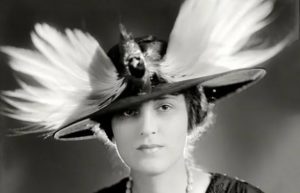March is women’s history month and the library blog is celebrating by featuring posts about the lives and stories of women. This first post is by George Grant, library assistant at the Ross Library. Thank you for writing for us, George! We would love to hear your comments and questions about the posts: please tweet us @GCWLibrary, email us at library@lincoln.ac.uk, or tell us your thoughts in the comments section at the end of the post.
The role played by women in the history of medicine is a storied and contentious one. It is defined by the struggle against the formalised and male led medical field which often side-lined and overlooked the important role of women. From the Renaissance writers who tactfully avoided the works of classical female medical practitioners, to the role of the church in labelling medicine/wise women as witches, women have, at least in Western Europe, been forcefully kept out of the more formalised aspects of medicine. This began to change in the mid-nineteenth century, with the rise and growth of movements advocating for the improvement in women’s legal and education rights. These movements led many women to question their position in society and to push into fields that had previously been closed to them.[1] The following three short biographies show how, in this period, women were able to make significant headway into the professional medical field by gaining medical qualifications against significant opposition. They worked to inspire each other and train the next generation of female doctors. As it stands today, over half of GPs in the UK are women. This staggering change in less than 200 years was built on the foundations laid by these women and others like them[2] Continue reading “A Celebration of Women in Medicine”
